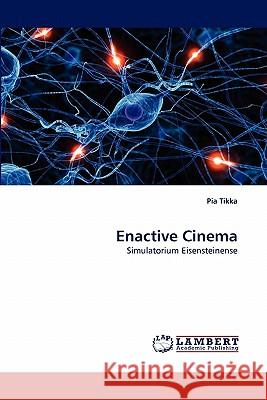Enactive Cinema » książka
Enactive Cinema
ISBN-13: 9783838352640 / Angielski / Miękka / 2010 / 352 str.
Enactive Cinema explores the psychophysiological grounds from which the experience of cinema emerges. It follows the traces left by Sergei M. Eisenstein, the Russian filmmaker and researcher of the pre-digital age, whose visions on organic-dynamic thinking carry implications for new kinds of interactive cinema even today. The book discusses in particular, what consequences the discoveries of the 21st century neurosciences have for cinema. It paves a neurophysiological explanation for authoring cinema as a socio- emotional simulation system of the other. The concept of enactive cinema involves an interactive cinematic montage system in which the narrative flow follows the unconscious enactment of the spectator. It can be seen as a dynamical abstraction of the mirroring system. The enactive cinema project Obsession (2005) demonstrates such a system in practice. Enactive Cinema implies reconsidering the role of the author. With the notion of second-order authorship, the focus is shifted from the conventional idea of explicit linear control over the cinematic narrative to designing the cinematic artifact as a complex dynamical system that may have emergent behavior.











